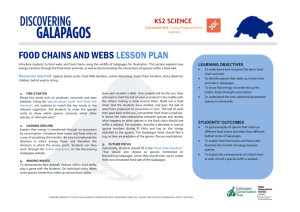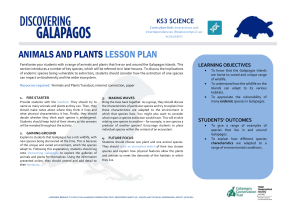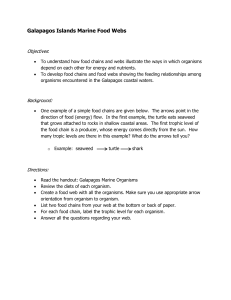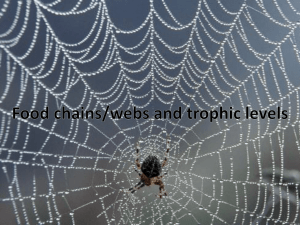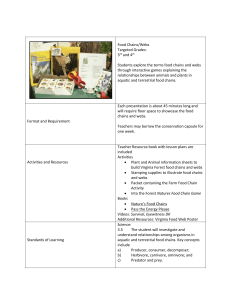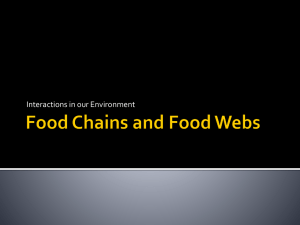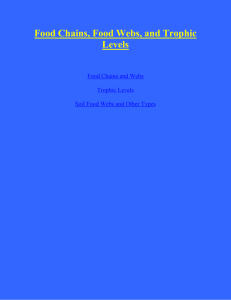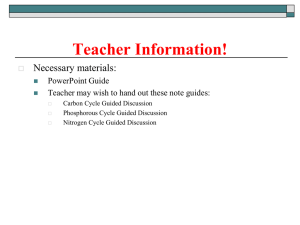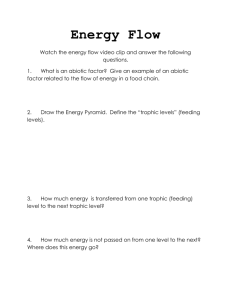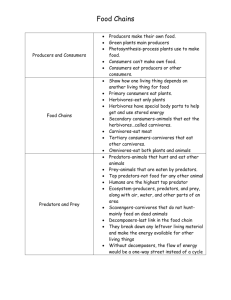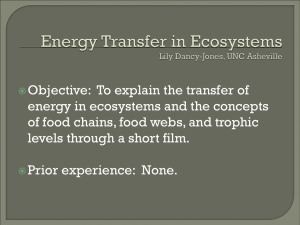1B2 Food Chains and Webs MSWord Lesson Plan Science KS3
advertisement
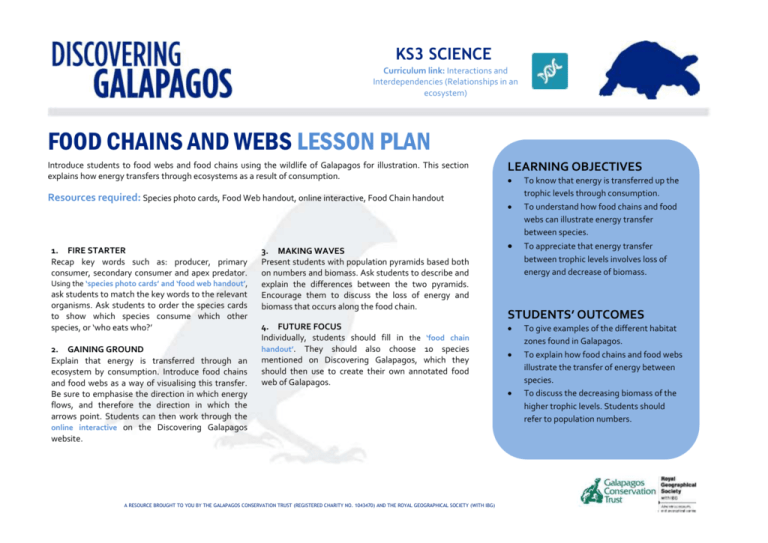
KS3 SCIENCE Curriculum link: Interactions and Interdependencies (Relationships in an ecosystem) FOOD CHAINS AND WEBS LESSON PLAN Introduce students to food webs and food chains using the wildlife of Galapagos for illustration. This section explains how energy transfers through ecosystems as a result of consumption. Resources required: Species photo cards, Food Web handout, online interactive, Food Chain handout 1. FIRE STARTER Recap key words such as: producer, primary consumer, secondary consumer and apex predator. Using the ‘species photo cards’ and ‘food web handout’, ask students to match the key words to the relevant organisms. Ask students to order the species cards to show which species consume which other species, or ‘who eats who?’ 2. GAINING GROUND Explain that energy is transferred through an ecosystem by consumption. Introduce food chains and food webs as a way of visualising this transfer. Be sure to emphasise the direction in which energy flows, and therefore the direction in which the arrows point. Students can then work through the online interactive on the Discovering Galapagos website. 3. MAKING WAVES Present students with population pyramids based both on numbers and biomass. Ask students to describe and explain the differences between the two pyramids. Encourage them to discuss the loss of energy and biomass that occurs along the food chain. 4. FUTURE FOCUS Individually, students should fill in the ‘food chain handout’. They should also choose 10 species mentioned on Discovering Galapagos, which they should then use to create their own annotated food web of Galapagos. A RESOURCE BROUGHT TO YOU BY THE GALAPAGOS CONSERVATION TRUST (REGISTERED CHARITY NO. 1043470) AND THE ROYAL GEOGRAPHICAL SOCIETY (WITH IBG) LEARNING OBJECTIVES To know that energy is transferred up the trophic levels through consumption. To understand how food chains and food webs can illustrate energy transfer between species. To appreciate that energy transfer between trophic levels involves loss of energy and decrease of biomass. STUDENTS’ OUTCOMES To give examples of the different habitat zones found in Galapagos. To explain how food chains and food webs illustrate the transfer of energy between species. To discuss the decreasing biomass of the higher trophic levels. Students should refer to population numbers.
